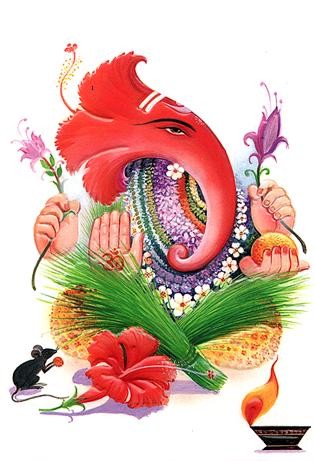Telugu words in Hebrew literature
Miss Samyuktha Kooniah's research work was published by me, with her permission, last year.
 Samyuktha Koonaiah
Samyuktha KoonaiahCHENNAI: In a path-breaking revelation, a young research scholar of Potti Sriramulu Telugu University has come out with recorded evidence linking Telugus and Israelis on the basis of Telugu words found in Hebrew literature.
The disclosure was made by Samyuktha Koonaiah in her presentation at a seminar on `Telugu History and Culture' on the concluding day of the three-day All India Telugu Conference here on Sunday. She quoted epigraphic evidence traced from Bahrain in support of her argument.
Ms. Samyuktha, who is doing her research on `Andhra Pradesh - The missing link - Tilmun language and Telugu', said a 1794 BC stone tablet established that the Sumerian-Assyrian culture had its roots in Andhra Pradesh.
Interesting revelations
In fact, an article titled `The Seafaring Merchants of Ur' published in the American Oriental Society in1954 by A. L. Oppenheim contains several Telugu words to prove that Abraham migrated from the `land of darkness', the `Andhaka Desa' as the Andhra region was known in the past, she said.
Research findings suggest that `Barbar' or `Barbaras', a native tribe living in the south of the Vindhyas was a common name in Assyrian culture. An earliest instance of calling children `Bullutu' was similar to that of the Telugu usage Bulli, Bullodu etc, she said. Another `provincial spelling' in Telmun literature and references to Sumero-Akkadian vocabularies contain this sentence `ni imta ha-is' similar to that of `nee intiki vachchi' (come to my home).
Letter on tablet
A stone tablet also contained a letter from a seafarer to a local trader demanding to know why he did not sell a particular commodity at a price agreed upon and why it was not weighed properly too.
Old Babylonian legal documents which were unearthed by archaeologists contain evidence of this letter belonging to one member of the Guild of Dilmun, Ea-Nasir. One of its lines when pronounced in Telugu becomes "ayya adhi annakimmani, tusi (tuchi) immani, maaki antundhi" (something to the effect `I have asked you to give it to my brother after weighing'. It was a deal about copper ingots.
Telling proof
Quoting several such examples Ms. Samyuktha said there was sufficient proof to link those Sumerian cultures with the Telugus. Hebrew, Sumerian and Assyrian records abound in such descriptions and suggest that the present Israelis belonged to Andhra Pradesh.
Ms. Samyuktha argues that Kamakur village in Balayapalli mandal of Nellore district still has 21 Jewish families. Only they are not even aware that they are Jews. She is one among them and her first name Kooniah could be found in Hebrew as Koni, she says.
Courtesy: The Hindu
Labels: tcld2006



1 Comments:
చాలా వింతగా ఉంది. ఎక్కడ ఇజ్రాయిల్, ఎక్కడ తెలుగు.
Post a Comment
<< Home